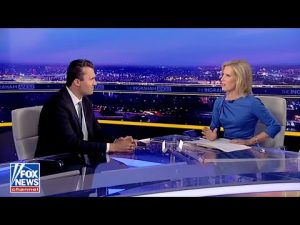President Trump’s administration is pulling out the big guns when it comes to Harvard University. On a sunny day, a memo went out stating a decision that has many buzzing: the federal government will be canceling about $100 million worth of remaining federal contracts with the prestigious Ivy League institution. This move comes right on the heels of some rather serious concerns that have been raised about Harvard’s ties to certain international entities, including the controversial Chinese Communist Party (CCP) and Iran. The memo was issued by the U.S. General Services Administration, emphasizing the administration’s growing resolve to reassess financial ties with institutions that are suspected of fostering troubling associations.
As the administration has already frozen around $3.2 billion in grants and contracts with Harvard since last month, this latest decision appears to be part of a broader strategy. It raises questions not only about how taxpayer money is being spent, but also about the ethical implications surrounding these financial agreements. Adding more fuel to the fire, President Trump has requested that Harvard disclose its list of international students, an act sparking debates that range from national security to academic integrity.
The backdrop to all this involves legal disputes that are unfolding, as a slew of lawsuits makes their way through the courts. Judge Andrew Napolitano, a senior judicial analyst, noted that while some of these cancellations might be justified, others are likely to face serious legal challenges. For instance, a significant number of the funds being targeted are not linked directly to the university itself, but rather to individual professors and researchers—a group of people who typically have no involvement in the broader institutional policies that the Trump administration has called into question.
One of the key issues under scrutiny is Harvard’s alleged institutional discrimination, particularly concerning its treatment of Jewish students. Reports have surfaced regarding instances of anti-Semitic behavior linked to protests on campus. In a rather alarming twist, one of the students involved in such incidents was appointed as a class marshal in the Harvard Divinity School, raising eyebrows and inciting ire among those who believe that such actions undermine ethical conduct and the standards expected from a respected academic institution.
Trump’s administration seems to think there’s a larger issue at play, arguing that Harvard is not just a university but potentially a facilitator of a problematic culture. The president’s push to dig deeper into the backgrounds of Harvard’s international students has caused some to question the balance between national security concerns and the academic freedom of students. According to privacy laws, student information is generally protected, creating a complex web of legalities that the White House may find tricky to navigate.
In this tug-of-war between a sitting president and one of the nation’s most storied educational institutions, there is a distinct sense that the stakes are high. Whether or not Trump’s approaches will yield lasting changes remains to be seen, especially given the inevitable court battles ahead. As this story unfolds, one thing is certain: education, politics, and ethics make for a potent mix, sure to keep both Washington and the academic world on their toes.







